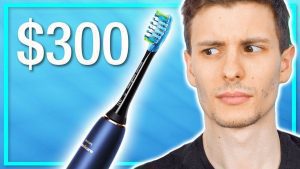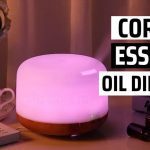Introduction
The daily ritual of oral hygiene has long been a topic of discussion, with the choice between electric and manual toothbrushes being a central point of debate. As advancements in technology have given rise to sophisticated electric toothbrushes, questions about their superiority over the traditional manual counterparts have become more prevalent. In this comprehensive exploration, we delve into the extensive body of studies and research to uncover the truth behind the electric toothbrush vs. manual toothbrush dilemma.
The Quest for Effective Plaque Removal
Plaque removal stands as the cornerstone of maintaining oral health. Various studies have sought to determine the efficacy of both electric and manual toothbrushes in this regard. A landmark study published in the “Journal of Clinical Periodontology” scrutinized the plaque removal capabilities of electric toothbrushes, particularly those employing oscillating-rotating movements. The findings revealed that electric toothbrushes consistently outperformed manual ones, reaching and cleaning areas that are often hard to access with traditional brushing methods. The rotational movements of electric toothbrushes were shown to contribute significantly to improved overall oral hygiene.
Gingivitis Reduction: A Crucial Indicator
Gingivitis, the precursor to more severe gum diseases, becomes a focal point when evaluating toothbrush effectiveness. A systematic review and meta-analysis published in the “International Journal of Dental Hygiene” sought to determine the impact of toothbrush types on gingivitis reduction.
The conclusion drawn from this comprehensive analysis was in favor of electric toothbrushes. Users of electric toothbrushes exhibited a more significant reduction in gingival inflammation compared to those who relied on manual toothbrushes. This underlines the potential of electric toothbrushes not only in plaque removal but also in the prevention of gum diseases.
Time Efficiency: A Technological Advantage
In the fast-paced modern world, time efficiency has become a crucial consideration. A study published in the “Journal of Clinical Dentistry” compared the brushing time and efficacy of electric and manual toothbrushes. The results indicated that users of electric toothbrushes spent more time on their oral care routine compared to manual brush users.
This extended brushing time correlated with better plaque removal and overall oral health. The efficiency gains afforded by electric toothbrushes, combined with their ability to encourage users to spend more time on oral care, contribute to their appeal in time-conscious societies.
Ease of Use and Compliance
The ease of use and user compliance play pivotal roles in determining the effectiveness of a toothbrush. A study published in the “American Journal of Dentistry” shed light on this aspect by examining user compliance with recommended brushing techniques.
Electric toothbrush users demonstrated better compliance, with real-time feedback features such as pressure sensors and timers contributing to the adherence of proper brushing practices. The ease of use and built-in guidance mechanisms in electric toothbrushes make them attractive choices for those seeking a user-friendly and effective oral care solution.
Special Populations: Effectiveness in Unique Cases
Certain populations, such as individuals with orthodontic appliances, face unique challenges in maintaining oral hygiene. Research has delved into the effectiveness of toothbrush types in these special cases. A study published in the “Angle Orthodontist” compared plaque removal in orthodontic patients using electric and manual toothbrushes.
The results favored electric toothbrushes, demonstrating their superior efficacy in reducing plaque around orthodontic brackets and wires. This makes electric toothbrushes a preferred choice for individuals undergoing orthodontic treatment, emphasizing their adaptability to diverse oral care needs.
Cost Considerations: Balancing Quality and Affordability
While the efficacy of electric toothbrushes is substantiated by research, cost considerations remain a significant factor in decision-making. Manual toothbrushes are generally more affordable, but a study published in the “Journal of Clinical Dentistry” proposed that electric toothbrushes could be more cost-effective in the long run.
The study considered factors such as reduced dental visits, lower treatment costs for oral health issues, and improved overall oral health outcomes associated with electric toothbrush use. This challenges the perception that manual toothbrushes are always the more economical choice.
Environmental Impact: A Different Perspective
In an era of increasing environmental consciousness, the sustainability of oral care practices is gaining attention. Manual toothbrushes, typically made of plastic, contribute to environmental concerns related to waste. Electric toothbrushes, with replaceable brush heads, may offer a more sustainable option.
However, the overall environmental impact depends on factors such as the materials used, recycling options, and the longevity of the device. This opens a different perspective in the electric toothbrush vs. manual toothbrush discourse, incorporating considerations beyond individual oral care.
Trending Today
Conclusion: Navigating the Choices
In the electric toothbrush vs. manual toothbrush debate, a nuanced understanding emerges from the wealth of studies and research available. Scientific evidence consistently supports the effectiveness of electric toothbrushes, showcasing their superiority in plaque removal, gingivitis reduction, and overall oral hygiene. However, the choice between electric and manual toothbrushes is not a one-size-fits-all decision.
Individual preferences, cost considerations, and environmental impact play crucial roles in shaping the choice between electric and manual toothbrushes. The key lies in striking a balance that aligns with personal priorities and values. Whether one opts for the advanced technology of an electric toothbrush or prefers the simplicity of a manual one, the overarching goal remains constant: maintaining optimal oral health for a brighter smile and a healthier life.




















